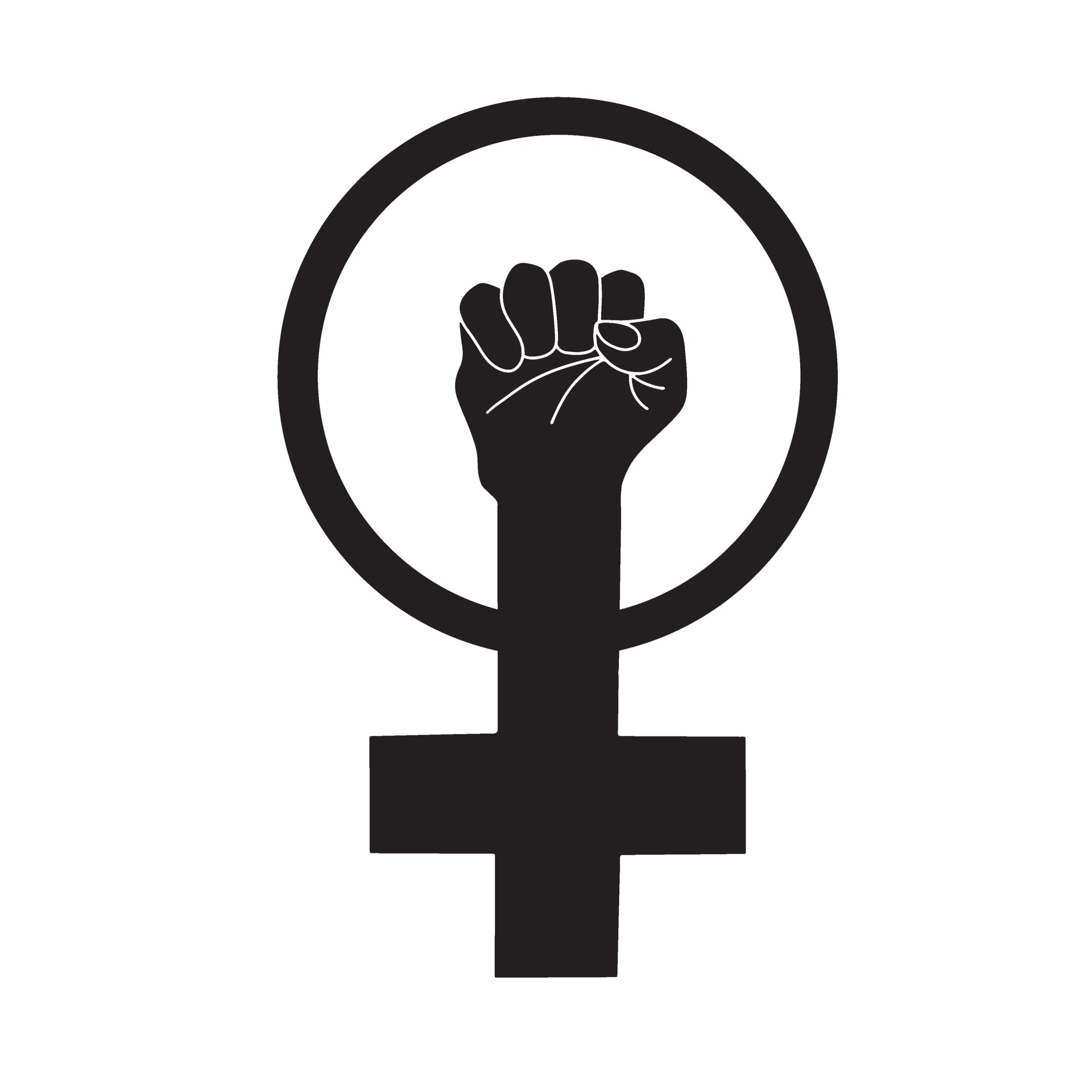Current Section: model
Lesson Women and Contemporary Calls
Women did not enjoy human dignity in ancient times and in most ancient civilizations. Instead, they were neglected and not given any consideration. They did not have any rights or eligibility, and they were bought and sold without any regard for their humanity and were seen as being lower than men.
This approach to undermining women continued during different civilizations and cultures until recently. Although the Western world, for example, has recently gone through a phase of change and liberation from the oppression of empires and the oppression of the Church, this change did not affect women and their issues until late.
This distorted view of women was supported by two main aspects:
In previous centuries, philosophers despised women, undermined them, and did not think they had any status or rights, and among them were Socrates, Plato, and Aristotle.

In Hinduism, a woman does not have the right to inherit from her parents, and if her husband dies, she must be burned with him because it is better for her not to live after him! As for the Jews and Christians, women had a low status, were accused of being the root of evil, immorality, and sins, and were treated as impure. These ideas were derived from their distorted books, from the religious conferences held, and supported by the authority of the priests and the church.

In the modern era, a set of beliefs, ideas, and theories have emerged that have influenced - and continue to influence - the ideas, perceptions, and behaviors of many societies with regard to women.
1- Modernism and Post-Modernism
Modernity makes man the center of the universe. It establishes his independence from revelation, and with his mind, he can explain himself, his environment, and the universe—most of the ideas, perceptions, and analyses that emerged after that was due to modernity.
2- Rationality
It is the exaltation of the mind and its standards, based on the premise that man is the center of the universe.
3- Freedom and Individuality
This refers to emphasizing the right of man to decide the fate of his civil affairs in a manner he deems appropriate for himself.
The theory talks about the origin of man and his development over millions of years until he evolved into his present form.

5- Emancipation of Women
The idea of women's liberation appeared in Europe, where women suffered from oppression and injustice, so the slogans of freedom and liberation from outdated legacies were raised. As a result, women were granted many human, social, political, and economic rights there. Still, the demands did not have a religious or value-based regulator organizing them, so they turned into calls for liberation from religion and values, not liberation from oppression and persecution, and all of this was wrapped up in the pretext of liberation from male or patriarchal authority.
Secularism and Women's Liberation
Among the ideas and calls associated with women’s liberation was separating religion from all aspects of life, implementing secularism as a way of life, and in particular, separation from religious controls and teachings.
This refers to separating what is related to managing all aspects of life from religion and starting with the concept of human beings as a reference point for human practices in their various fields—political, economic, social, and others.

7- Gender Equality
This call is based primarily on equality between men and women for the right to education, work, civil, political, and other rights, and eliminating all forms of discrimination against women. However, calls for equal rights have deviated from the primary context, becoming insensitive to differences and differences between males and females, thus becoming a call for equality between different entities.
The thought calling for women’s liberation and gender equality is called “feminist thought.” This thought has emerged from movements that practice many intellectual, political, social, and other activities. Feminist thought, with its various activities, has sought to consolidate many ideas and practices in societies.

Principles of Feminist Thought
The CEDAW Convention
Women's rights organizations and feminist organizations sought political support through states' ratification of an international treaty adopted by the United Nations General Assembly in 1979 to eliminate all forms of discrimination against women - CEDAW.
The Essence of CEDAW
The agreement is based on absolute equality and parity between men and women in all fields. Political, economic, social, mathematical, legal, and the like, and this is a principle that is contrary to what is right and to the heavenly laws, and opposes the apparent meaning of the Quran and Sunnah, and what sound minds lean towards and is established by righteous instincts. As for his opposition to the Quran, the saying of Allah: (And the male is not like the female.) [Al-Imran: 36] Also, the saying of Allah: (Men are the maintainers of women.) [An-Nisa: 34] Also, the saying of Allah: (And men have a role over them.)[Al-Baqara: 228] As for the opposition to the Sunnah, then the Prophet ﷺ said: «All of you are shepherds, and each of you is responsible for his flock. The man is a shepherd in his family, and he is responsible for his flock, and the woman is a shepherd in her husband’s house and responsible for her flock.»(Al-Bukhari 893, Muslim 1829). As for its opposition to what has been generally understood by most, which does not need much clarification, are the clear differences in physical and psychological formation, which must lead to differences in capabilities and functions of life. Hence achieving complete equality and symmetry is contrary to the origin of the creation of males and females.
CEDAW and Hostility Between Men and Women
CEDAW and feminist movements portray the relationship between men and women as a relationship of competition and historical conflict they want to end. The way to achieve that is complete equality between men and women. They claim that any extra advantage for men is at the expense of women. This is a very blinkered view. The relationship between a man and a woman is one that each role complements and cooperates with the other. There is no competition or hostility between them. Each has a role and function, so they complement each other in harmony to achieve mutual acquaintance, affection, and mercy and save the species. Allah says: (O humanity! Indeed, We created you from a male and a female and made you into peoples and tribes so that you may ˹get to˺ know one another. Undoubtedly the most noble of you in the sight of Allah is the most righteous among you. Allah is truly All-Knowing, All-Aware.)[Al-Hujurat:13], Allah also says: (And one of His signs is that He created for you spouses from among yourselves so that you may find comfort in them. And He has placed between you compassion and mercy. Indeed in, this are signs for people who reflect.) [Ar-Ruum:21], and then the different roles of life require a difference in rights and duties without injustice or prejudice, for every extra duty is matched by a superfluous right: justice.
Does the legislation call for equality between men and women?
The Islamic legislation establishes equality between men and women in the origin and moral dignity, in responsibility and carrying the trust, in reward in this life and the next, in the entitlement of each of them for their rights, in performing rituals and resorting to the rulings and high morals. Then the legislation decides the positive discrimination between them because they differ in physical and psychological nature. The woman is not required to perform jihad due to the weakness of her structure, and she does not pray or fast during her times of menstruation and postpartum, and she is not obligated to spend on the house even if she is rich. In constant the man has been obliged to spend on his wife and their children otherwise he will be punished if he falls short or refuses, and as a result of these duties he has extra rights, and this is the essence of justice.
The Justice of the Islamic Legislation in Inheritance
There is no injustice to women regarding inheritance in Islamic legislation, as she sometimes takes less than a man’s share, sometimes the same as his share, and sometimes more than his share, and sometimes she inherits. However, he does not inherit, all of that is for a ruling that Allah knows, and the clarification of that is in the books of the people of knowledge.
One Form of Honoring Women in the Legislation
Islamic legislation protects and honors women; Allah says: (Whoever does an evil deed will only be paid back with its equivalent. And whoever does good, whether male or female, and is a believer, will enter Paradise, where they will be provided for without limit.) [Ghafir:40] The Prophet ﷺ said: «Women are the sisters of men.» (At-Tirmidhi, 113). Therefore, the woman’s guardian (the father or the husband) must house her and spend on her. She is not required to pay a single dinar - except willingly - no matter how rich she is, and she similar to the man is in her financial capacity. No one has financial guardianship over her, whether her father or husband. The woman has the right to buy, sell, lease, go into a partnership, give collateral, and shares, make decisions, give a warranty, conciliation, and other such contracts and obligations.




